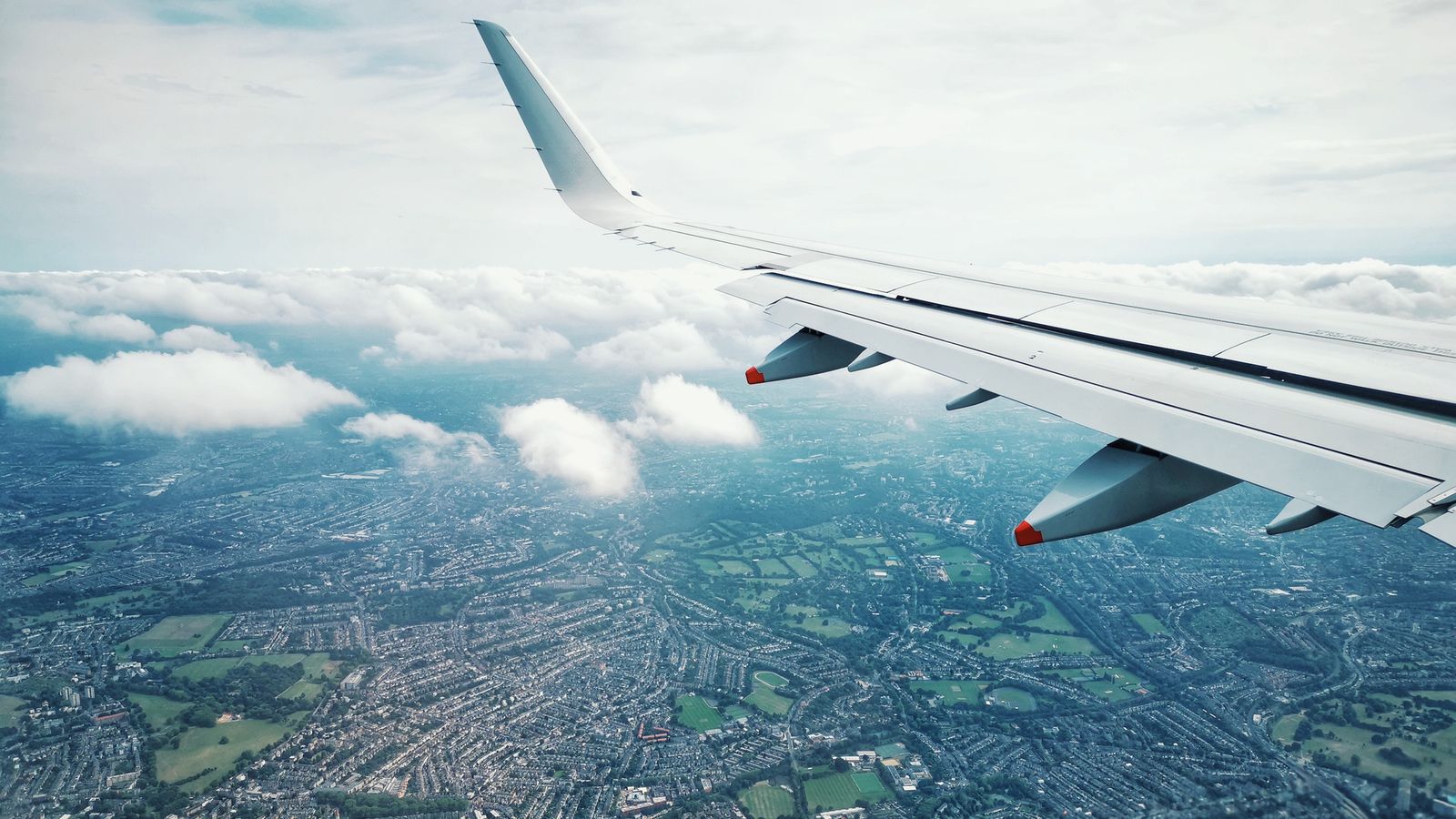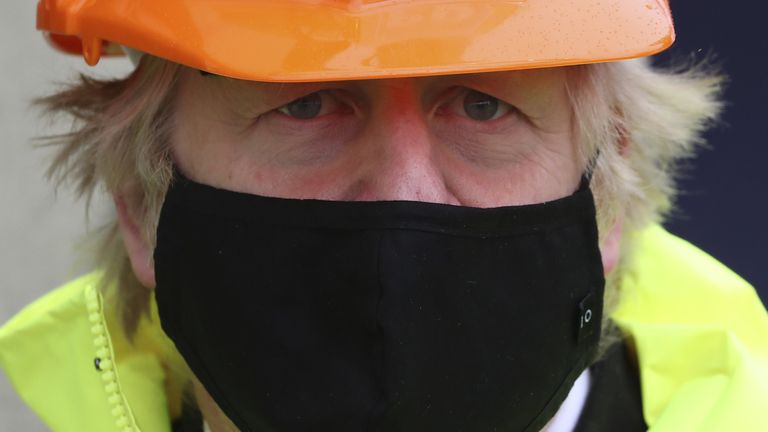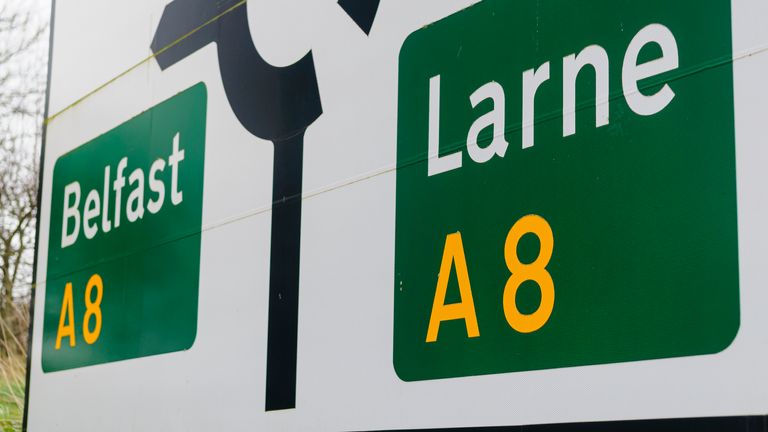Radical plans to speed up travel around the UK – including a rail tunnel between Scotland and Northern Ireland – are being unveiled by Boris Johnson.
They include a controversial proposal to slash domestic air fares – by cutting air passenger duty on internal UK flights – and plans to improve rail, road, sea and air links.
But cutting air passenger duty has been condemned as undermining UK climate change commitments and a rail tunnel has been dismissed by the Scottish government as a “vanity project”.
The transport revolution is contained in a report commissioned by the prime minister on boosting transport links between the four nations of the UK, a move aimed at saving the Union and aiding post-Brexit trade.
The measures are proposed in an interim “Union Connectivity Review”, carried out by Network Rail chairman Sir Peter Hendy – a long-time ally of Mr Johnson since his days as London mayor – and a panel of experts.
“It’s now time to build back better in a way which brings every corner of the UK closer together,” Mr Johnson said.
“We will harness the incredible power of infrastructure to level up parts of our country that have too long been left off the transport map.
“This pioneering review by Sir Peter Hendy gives us the tools we need to deliver on our ambitions for a UK-wide transport network that encompasses sea, rail, and road.
“And I also want to cut passenger duty on domestic flights so we can support connectivity across the country.”
As well as his ambition to cut air passenger duty, the prime minister’s dream of a rail tunnel between Scotland and Northern Ireland is equally eye-catching and controversial.
On the tunnel, Sir Peter writes in his report that he has asked transport experts and engineering consultants to assess the feasibility of a fixed link and produce an outline cost and timescale for the work needed.
Dubbed “Boris burrow”, a tunnel was first mooted by Mr Johnson in 2018, but he will now hope it might help ease tensions caused by the post-Brexit border arrangements under the Northern Ireland Protocol.
It would be roughly 25 miles long, about the same length as the Channel tunnel, and run from Stranraer in Scotland to Larne in Northern Ireland.
But it has been claimed it may potentially be closed for a third of the year due to poor weather conditions and that unexploded bombs on the Irish Sea bed, dating back to the Second World War, could also pose a risk to construction.
Scotland’s Transport Secretary, Michael Matheson, has claimed a tunnel could cost more than £33bn and declared: “This is nothing more than a vanity project from Boris Johnson.”
On air travel, Sir Peter says in his report that since Flybe collapsed last year some routes were quickly adopted by rival airlines, but a significant number of unprofitable routes that the airline operated have not yet been filled.
And he says this will be a key consideration for the review of air passenger duty now being carried out by the government.
Subscribe to the All Out Politics podcast on Apple Podcasts, Google Podcasts, Spotify, Spreaker
Answering environmental concerns, Sir Peter writes: “Although aviation is one of the least environmentally friendly modes of transport, the volumes are relatively small.
“Greenhouse gases from domestic flights make up less than 1% of total domestic transport emissions.”
But, with the UK due to host a major international climate change summit later this year, Liberal Democrat MP Sarah Olney said: “Britain will be laughed at on the world stage if we decide to hike rail fares then cut the cost of UK air travel in the same month.
“At a time when other countries are encouraging more people to take trains, Britain’s strategy will be the complete opposite.
“We will be the odd one out at our very own COP26 summit.”
And Manuel Cortes, general secretary of the rail union TSSA, said: “Cutting passenger duty on domestic flights flies in the face of the government’s apparent climate commitments.
“If Johnson wants to be taken seriously at COP26 then his government needs to invest in truly green public transport, in particular rail which is the most effective intercity connection taking people to the heart of our towns and cities.”
To jump-start some of the improvement schemes identified by Sir Peter in his report, the government is committing £20m towards exploring the development of projects including:
• Improved rail connections between the north coast of Wales and England
• Upgrading the A75 between Gretna, Dumfries and Stranraer, a key route for southwest Scotland and Northern Ireland which is almost entirely single-carriageway
• Significantly faster rail links from England to Scotland, including looking at options to enhance the West Coast Mainline
• Rail improvements in southeast Wales.
Sir Peter added: “Devolution has been good for transport but it has also led to a lack of attention to connectivity between the four nations, due to competing priorities and complex funding.
“A UK Strategic Transport Network could resolve this, with its core objective centred around levelling up across the whole of the UK.”


